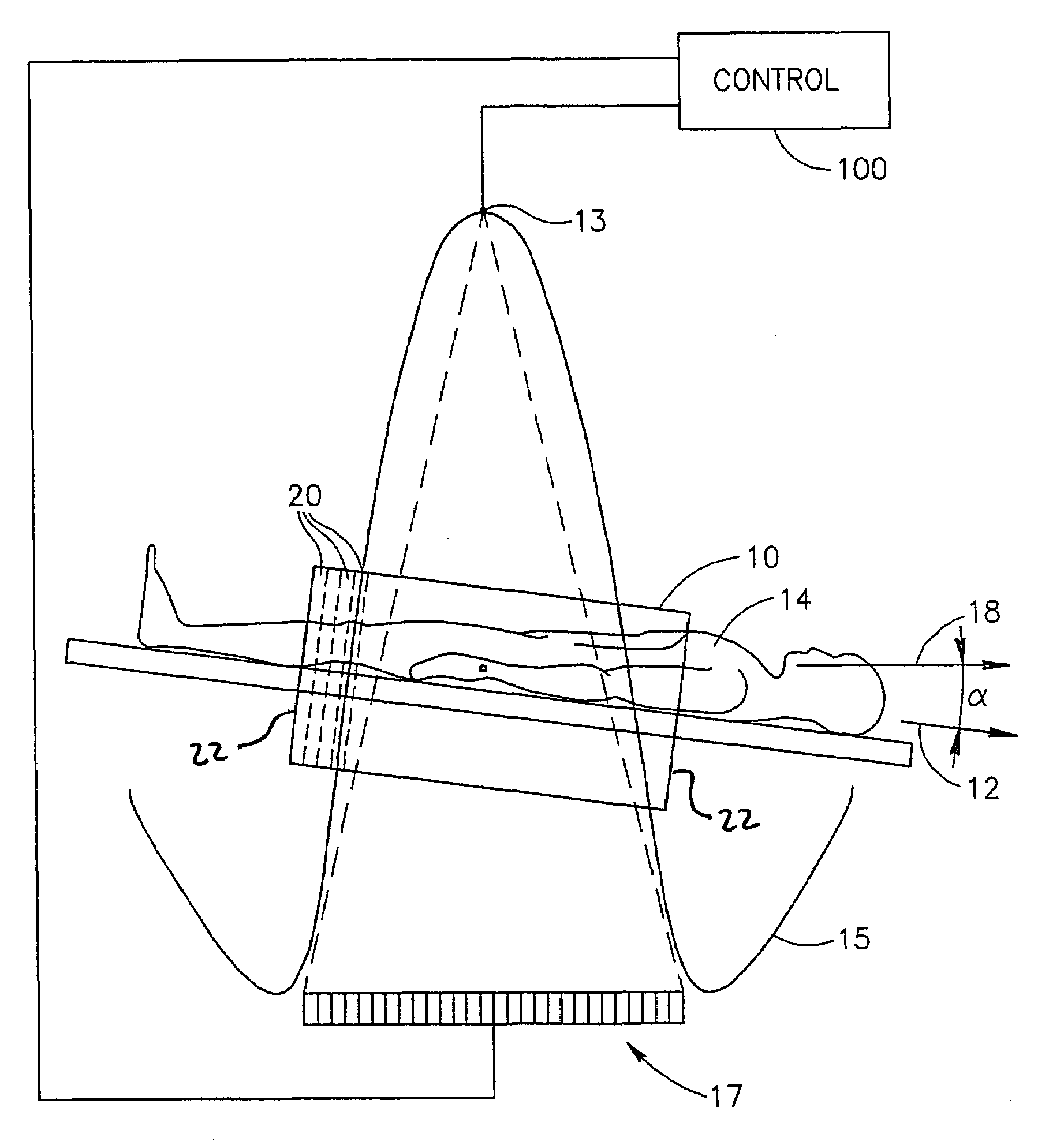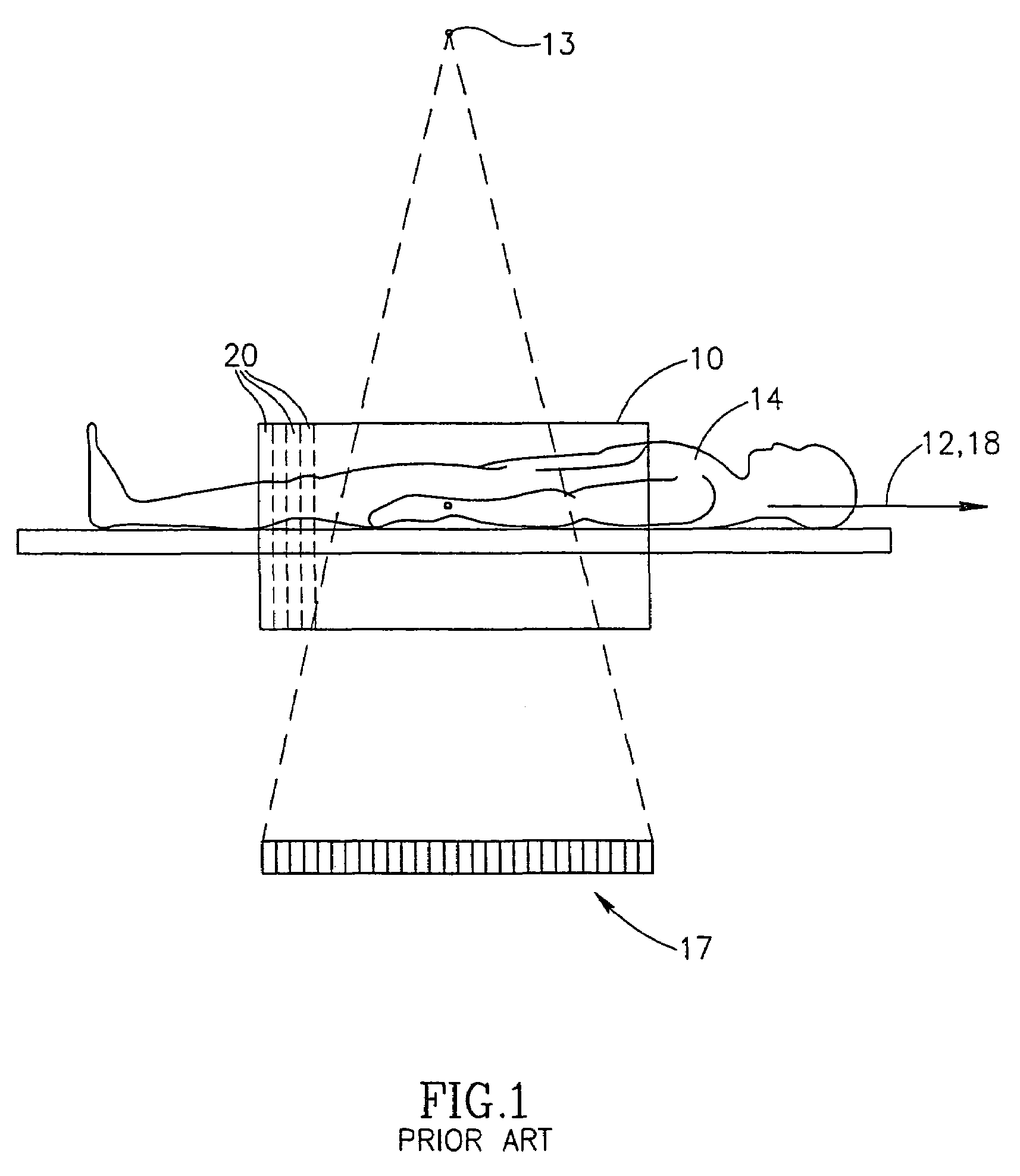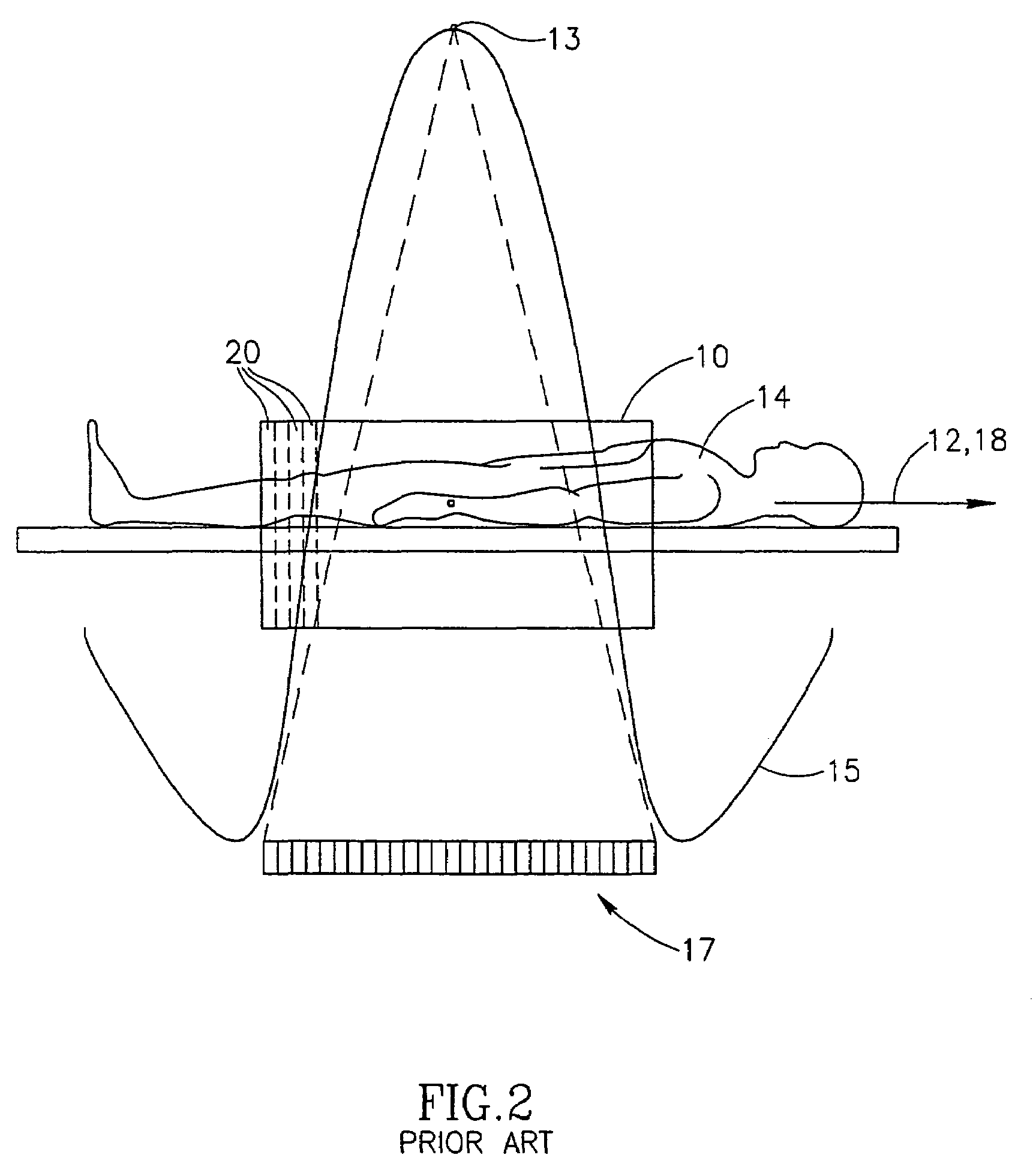Cone beam CT scanners with reduced scan length
a ct scanner and cone beam technology, applied in the direction of instruments, patient positioning for diagnostics, applications, etc., to achieve the effect of reducing the number of rotations, increasing the scan pitch, and reducing the scan length
- Summary
- Abstract
- Description
- Claims
- Application Information
AI Technical Summary
Benefits of technology
Problems solved by technology
Method used
Image
Examples
Embodiment Construction
[0048]FIG. 1 shows a side view illustrating the geometry of a multi-slice cone beam according to the prior art. A cylindrical volumetric region of interest (VROI) 10 having a patient axis 12 is scanned by an X-ray source 13, while rotating about a rotation (CT) axis 18, which is shown as being coincident with axis 12 for the prior art system shown. A patient 14 moves in a direction 12. Marked on VROI 10 are a series of slices 20 (only a few of which are indicated), for which images are desired. In the prior art system, when transaxial slices (as shown) are to be imaged, the patient axis and the CT axis are coincident.
[0049]For the purposes of description of the present invention, the presentation of FIG. 2, which is equivalent to that of FIG. 1, is useful. While in FIG. 1, the patient is considered to have the motion along its axis and the X-ray source is considered to have a pure rotational motion, in FIG. 2, source 13 is shown as describing a helical motion 15 and the patient is c...
PUM
 Login to View More
Login to View More Abstract
Description
Claims
Application Information
 Login to View More
Login to View More - R&D
- Intellectual Property
- Life Sciences
- Materials
- Tech Scout
- Unparalleled Data Quality
- Higher Quality Content
- 60% Fewer Hallucinations
Browse by: Latest US Patents, China's latest patents, Technical Efficacy Thesaurus, Application Domain, Technology Topic, Popular Technical Reports.
© 2025 PatSnap. All rights reserved.Legal|Privacy policy|Modern Slavery Act Transparency Statement|Sitemap|About US| Contact US: help@patsnap.com



